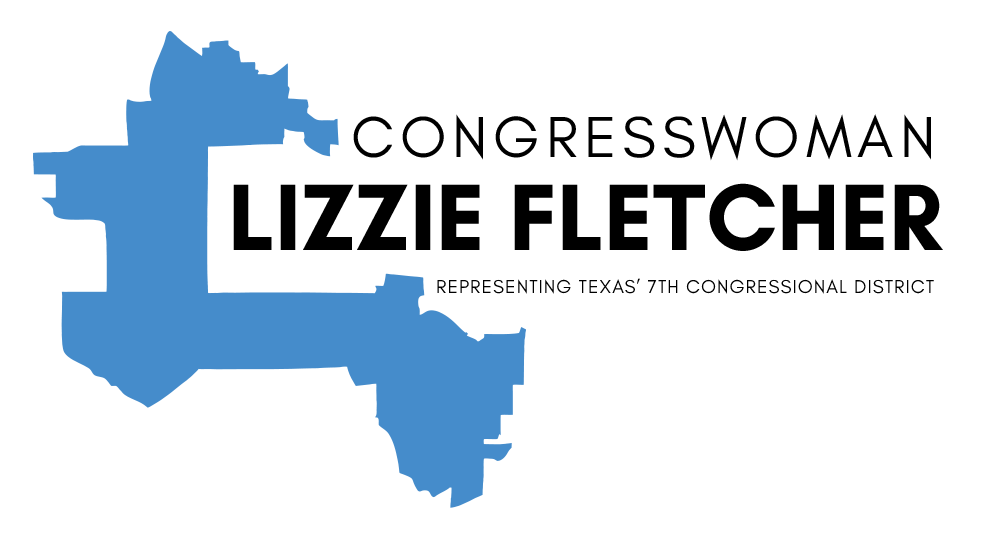|
Dear Neighbor,
Today, the House of Representatives passed, and the President signed into law, the Coronavirus Aid Relief and Economic Security (CARES) Act.
We are facing a crisis unlike any we have experienced in our lifetimes and in our country's history. It is impacting every aspect of our lives. The magnitude of the crisis calls for an unprecedented response.
While this bill is not a perfect piece of legislation, it addresses many of the concerns facing communities across the country, including ours. It builds upon the first two bills we passed in response to COVID-19 to provide rapid and meaningful relief for individuals, businesses, and our first responders on the frontlines of this crisis.
I have worked with my House colleagues on both sides of the aisle to ensure that the priorities of Texas’ Seventh Congressional District are reflected in this bill, and I supported its passage today. I will continue to advocate for our community and our country as we face this challenge together. In the face of the COVID-19 pandemic, Congress must respond swiftly to the changing needs of the people across our country.
Here is a summary of what the CARES Act will provide:
- $150 billion fund for the country’s health system, which will be available to hospitals and providers most affected by COVID-19 to invest in personal protective equipment, testing supplies, increased workforce, and more;
- $150 billion to state and local governments to help pay for new expenses related to COVID-19 response, including an estimated $11 billion in funding to Texas, and the ability to directly allocate funds to cities and counties including Houston and Harris County;
- Direct payments to American families of up to $1,200 for adults ($2,400 for couples), and $500 per child under the age of 17;
- $260 billion for unemployment insurance, including reforms that make the program more expansive and inclusive, such as:
- creating a temporary Pandemic Unemployment Assistance program through December 31, 2020 to provide payment to those not traditionally eligible for unemployment benefits (self-employed, independent contractors, and others) who are unable to work as a direct result of the coronavirus public health emergency.
- providing an additional $600 per week payment to each recipient of unemployment insurance or Pandemic Unemployment Assistance for up to four months.
- providing an additional 13 weeks of unemployment benefits through December 31, 2020 to help those who remain unemployed after weeks of state unemployment benefits are no longer available.
- $377 billion to provide immediate relief for small businesses and non-profits, including:
- $350 billion in loan forgiveness grants to small businesses and non-profits to maintain existing workforce and help pay for other expenses like rent, mortgage, and utilities through the Paycheck Protection Program that will:
- support $349 billion in 100 percent guaranteed, low-interest, no-fee loans of up to $10 million with repayment deferred for at least six months; and
- forgive up to 100% of the loan if the borrower has retained the same number of employees as when they received the loan;
- $17 billion for debt relief for current and new SBA borrowers. SBA will pay the principal and interest for the next 6-months on SBA-backed loans;
- $10 billion for SBA emergency grants of up to $10,000 to provide immediate relief for small business operating costs;
- Up to $10,000 to applicants within 3 days of applicants self-certifying they are eligible;
- Use of the SBA’s network of 2,500 lenders to process these loans as quickly and efficiently as possible.
- $330 billion in emergency appropriations, including:
- $16 billion to replenish the Strategic National Stockpile supplies of pharmaceuticals, personal protective equipment, and other medical supplies, which are distributed to State and local health agencies, hospitals and other healthcare entities facing shortages during emergencies.
- $1 billion for the Defense Production Act to bolster domestic supply chains, enabling industry to quickly ramp up production of personal protective equipment, ventilators, and other urgently needed medical supplies, and billions dollars more for federal, state, and local health agencies to purchase such equipment.
- $45 billion for FEMA’s Disaster Relief Fund, more than doubling the available funding, to provide for the immediate needs of state, local, tribal, and territorial governments, as well as private non-profits performing critical and essential services, to protect citizens and help them recover from the overwhelming effects of COVID-19.
Our work in Congress is not done – we must continue to evaluate the facts as they develop, listen to our constituents, listen to the experts, and do all we can to deliver additional relief in the weeks and months ahead. Members are already talking about the next work we need to do – from working to put our country back to work with an much-needed infrastructure bill to cutting red tape and reassessing regulations that hinder our ability to respond to COVID-19 across the country.
I am committed to fighting for our district. I will continue to update my website with information on resources to guide you through all the help available, which you can access here. I will continue to host telephone town halls and connect with you individually over the phone. And everyone in my office will continue to stand ready to help in any way we can.
I know these are uncertain times, but I have seen the very best of our community in responding to this pandemic. And I know we will get through this together.
Best wishes,
|


